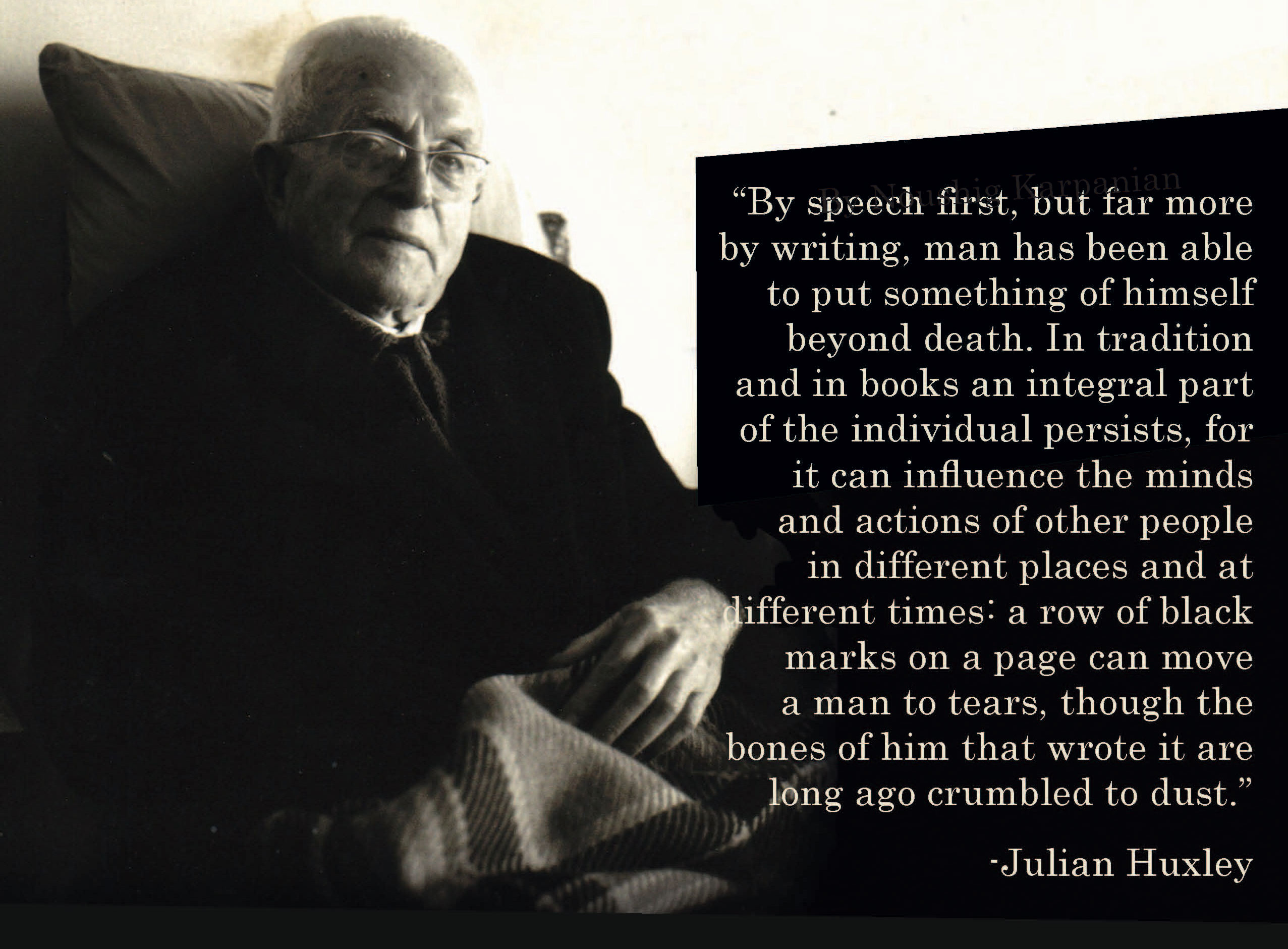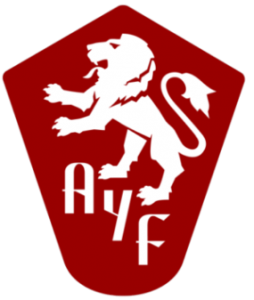Verba Volant, Scripta Manent: The Words of My Grandfather that Never Flew Away
By Noushig Karpanian
I am the (un)fortunate grandchild of four individuals who all had their respective immediate experiences with the Genocide.
On my mother’s side, my grandfather Hagop DerHagopian was orphaned, (and only given his last name at the orphanage on account of his first name). He was dropped off at an Armenian orphanage by the Kurdish family who took him in after his entire family was murdered and they sought to raise him as one of their own, giving him the Kurdish name, Sedya. They realized the child who was crying for his “mama” fiercely resisted the Kurdish ways and might never replace “mama” with “ummi” as they had hoped. My grandmother, Yeghsapet Minasian survived a bit more unscathed, losing only one brother during the marches in the confusion and chaos of deportation.
I am currently working on translating my grandfather’s life memoirs from Armenian to English. I’ve included an excerpt here wherein my grandfather describes his agonizing solitude in Marash in 1922, when his mother, with no choice after her husband and his brother were murdered, flees from Marash, eventually making it to Damascus and wherein his younger siblings eventually join her via the American missionaries and generous efforts of the Near East Relief. My grandfather was 21 years old in 1922 and unable to legally leave Turkey because he was of conscription age, and only succeeds in leaving Marash when he surrenders to his fate.
************
Pages 750-753
In the beginning of 1922 my brother Nshan left Marash and headed to Lebanon to the city of Jebeil where he stayed approximately one year at the Near East Relief Society orphanage before heading to Damascus to join our mother.
A few months after Nshan’s departure, Mairanoush, my sister, also left to Haleb with American missionaries/orphanages and from there joined my mother; my mother hadn’t yet made it to Damascus.
It was after Nshan and Mairanoush left Marash that I was completely and utterly alone and my situation seemed unbearable to me.
Every minute of every day, I would ponder and contemplate how I also might be able to escape Marash, my birthplace, which before my very eyes looked like nothing other than hell; but not a means nor a method presented itself as the obstacles in my way were many.
Two or three times I made attempts to requisite governmental divisions to gain legal exit, however my filed petitions were rejected. I failed. I was unsuccessful given that I was of age for conscription. After my petition would make its way past a few divisions, it would remain stuck at the military officer’s desk. I could not be seen by them, and in that way I would face failure.
One day I took my petition request to the police station. A few days later I returned to receive an answer but the police chief, a man with a brute face, told me that my background check did not raise any suspicions however, since I’ve shaved my mustache they are concerned that I do not resemble the photograph on file.
I replied, “Efendi, my mustache stubble is new, however one side has grown in black while the other blond; I have shaved it in hopes that they will grow in similar color.”
Wouldn’t you like this response from the police chief? He told me to come back in eight days without shaving my mustache in order to verify my reply.
He wrote his notes on my application and gave them to me. I took my papers, and pursued a few others avenues but my papers once again got stuck in the military office. And that’s where they remained as I never went back to claim them given my unsuccessful attempts thus far.
Days would pass, months would pass, however I still remained in Marash unable to gain a means to escape the borders of my ravished birthplace.
The majority of the city’s Armenian population, with no choice in the matter, left their homes, properties and riches and fled to Syria, Lebanon and beyond. Every day my worry intensified; when would I also, and through what means, would I free myself from this hell incarnate of a place? I was burdened by my own constant questioning; there were hardly any Armenians left in Marash. Only God knows how many times I got up on my feet to head away from the city, however, I did not succeed due to one thousand and one obstacles. Many a times I thought to embark on my exit with my government papers in hand, but those were no longer in my possession. And it was like this that I surrendered to what fate had in store, to what was literally written on my forehead, my destiny, my jagadakeer, though I had never believed in such a surrender before. For, how is it that without your own extension of your hand that an apple will make its way from the tree to your mouth?
************
My grandfather’s escape reads like a movie script; the scenes are vividly haunting and though I myself am proof of his survival, every time I re-read the pages, I do so nervously, biting my nails, forgetting to breathe, incessantly flipping the pages just to make sure he escapes successfully and that no one points out his ingenious disguise to Turkish gendarmes. My grandfather was of the fortunate few who not only “made it” but who was also lucky enough to be reunited with his family whom he had no contact with for over two years. The scenes he recaps of their reunion are gut-wrenching and bittersweet, although they are not unique. So many stories like his occurred, but so many are unfortunately lost, or might only circulate orally and will soon be lost.
My grandfather made it very clear that he realized his good fortune in surviving the Genocide, in being reunited with his family members who had also survived and he thus wrote thousands of pages during his lifetime to preserve those stories so that his children and then unborn grandchildren would avenge the injustices that befell the Armenians, and that the world would thus never forget the monstrosities they faced. I now hope to do my humble part as I attempt to translate his story, Our Story. Armed with his words, which serve as my inspiration and compass, I hope that I am one step closer to realizing his wishes.
*Latin proverb which, literally translated, means “spoken words fly away, written words remain.”



Leave a Reply
Want to join the discussion?Feel free to contribute!